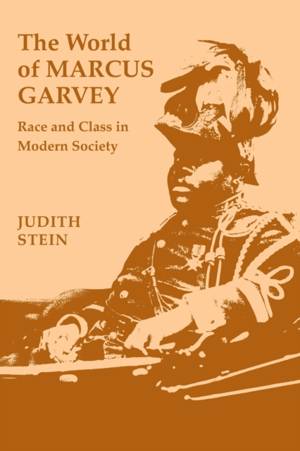
En raison d'une grêve chez bpost, votre commande pourrait être retardée. Vous avez besoin d’un livre rapidement ? Nos magasins vous accueillent à bras ouverts !
- Retrait gratuit dans votre magasin Club
- 7.000.000 titres dans notre catalogue
- Payer en toute sécurité
- Toujours un magasin près de chez vous
En raison de la grêve chez bpost, votre commande pourrait être retardée. Vous avez besoin d’un livre rapidement ? Nos magasins vous accueillent à bras ouverts !
- Retrait gratuit dans votre magasin Club
- 7.000.0000 titres dans notre catalogue
- Payer en toute sécurité
- Toujours un magasin près de chez vous
53,45 €
+ 106 points
Description
In the years during and after World War I the Pan-Africanist Marcus Garvey led what has been called the largest international mass movement of black people in the twentieth century. He and his organization, the Universal Negro Improvement Association (UNIA), built a steamship line, sponsored expeditions to Liberia, staged annual international conventions, inspired many black business enterprises, endorsed black political candidates, and fostered the study of black history and culture.
In The World of Marcus Garvey, Judith Stein examines Garvey's ideology and appeal by placing Garvey and the UNIA carefully in the context of the international black politics and class structure of the period. She analyzes the ways Garvey boldly employed conventional racial ideas and goals to organize a militant black population during the social and political upheavals of World War I and its aftermath. In addition, Stein sheds new light on her subject, drawing on personal interviews with surviving Garveyites and reports from the federal government's intelligence organizations.Spécifications
Parties prenantes
- Auteur(s) :
- Editeur:
Contenu
- Nombre de pages :
- 320
- Langue:
- Anglais
Caractéristiques
- EAN:
- 9780807116708
- Date de parution :
- 01-01-91
- Format:
- Livre broché
- Format numérique:
- Trade paperback (VS)
- Dimensions :
- 153 mm x 229 mm
- Poids :
- 430 g

Les avis
Nous publions uniquement les avis qui respectent les conditions requises. Consultez nos conditions pour les avis.






